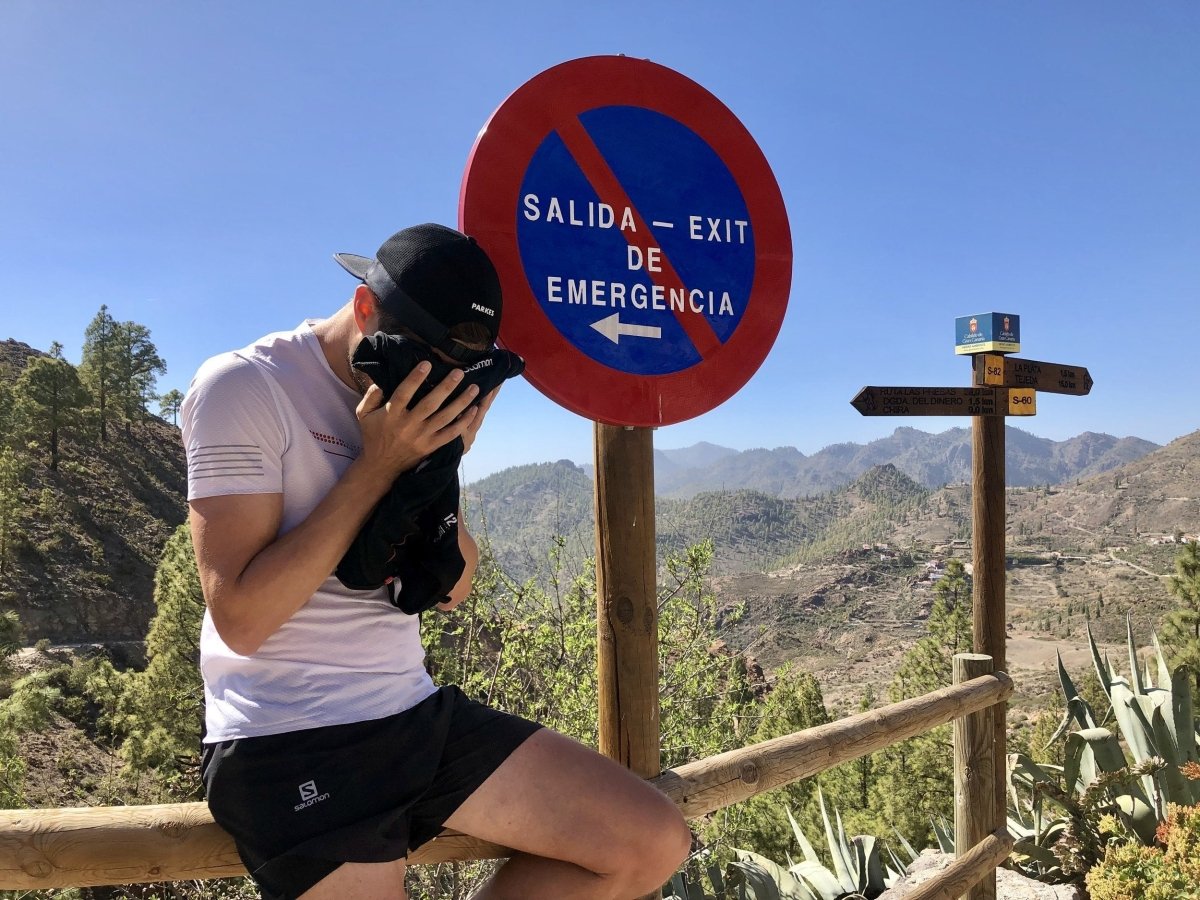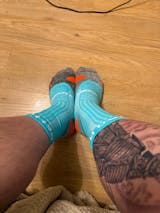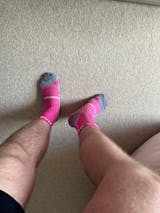Hi Everyone,
What I wanted to touch on this week is overtraining. Could you be doing too much training? Are you feeling stressed out? Are you picking up injuries? Would you know how to spot the signs of overtraining?
I don’t want this to be doom and gloom, but it’s important to know the symptoms, take necessary actions and then that way we can keep more people running happy and enjoying the sport!
Always a hot topic, so let’s get going!
Overtraining, or doing too much running / exercise / strength etc, can actually lead to a loss of fitness as well as potentially increasing your risk of injury, stress and a drop in motivation.
For me, I like to monitor how I’m doing by checking my resting heart rate (RHR) each day. My Garmin GPS watch does this automatically via the built in heart mate monitor (HRM), but you can simply count the beats per minute (BPM) of your heart rate when you wake up each day and keep a record. A rise in around 10bpm from your usual level would be cause for concern.

Some other indictors of over training could be
- Constant muscle soreness (DOMS) and slow recovery between runs.
- Frequent colds due to the stress you are putting through the body and the immune system is more vulnerable.
- Higher perceived effort for the same runs, or sessions that you’re doing.
- Race times getting slower (when expecting to get quicker.. not because we’re getting older!!)
- Keep picking up niggles or injuries, as your muscles are tired or you’re running with poor form.
- Lack of motivation to get out the door and get your runs in.
So how do we go about getting the balance right?
- Follow a training plan that has a wide variety of different paced runs, with different intensities. So many newer runners run the same moderately hard pace on all their runs but having a balance of intensities throughout the week will vastly reduce the stress on the body and allow us to build mileage safely.
- Rest and listen to your body! If you see some of the symptoms above, take a few days off. This is when your body adapts so you need to give it a chance to absorb the training you’ve been doing. Remember most of us can take around 7 days off before any drop in fitness occurs.
- Lower the intensity. There is sometimes a sense that when doing intervals or hills, we need to be maxing out at 100% effort on our repeats but that is absolutely not necessary. With all my athletes we go by effort levels for reps and this is never over 80-85%. We shouldn’t be running ‘flat out’.. so keep things controlled and focus on hitting constant pace reps so you are able to finish the session feeling strong rather than rinsing yourself on the first few repeats and not being able to complete the session.
- Nutrition. I can’t tell you what to eat, but focus on eating unprocessed food as much as you can and foods that make you feel good. Wholegrains, fresh fruit and vegetables, with a balance of protein, carbohydrates and healthy fats. Look up antioxidant foods as well, such as blueberries! Love them!
- Blood tests. With companies like Medichecks and Thriva now offering at home blood tests, these can be a quick and easy way to highlight any issues you might be having. I do this every 6 months to check how I’m fuelling and recovering. I have a YouTube video about my recent blood tests, which you can see here for example.
- Talk. Open up to friends and family around you. If this is your first marathon, that in itself can be stressful, balancing training, possibly fund raising all on-top of your regular day to day activities. Speak about what you're going through and share how you’re feeling.
- Recovery. Have a read through my recovery article here and see what you can build into your routine. If we can get our recovery routine in better shape, then we can progress through our training better.
Finally, as race day approaches there is always a sense of feeling we need to do more. We need to run faster, put in an extra session during the week. Believe me, this rarely has a positive effect and the best thing we can do is train sensibly and deliver our body to the start line injury free, refreshed and ready to run.
Have you had any issues with over training? What do you find works the best for you? Are you able to take a step back? It’s sometimes hard I know..
See you all on Thursday, where I’ll be writing a guide for the London Marathon.. and also Manchester, Edinburgh, Liverpool and Brighton soon after. So tune in then for my top race specific tips for these runs.
Have a great week!
Ben












